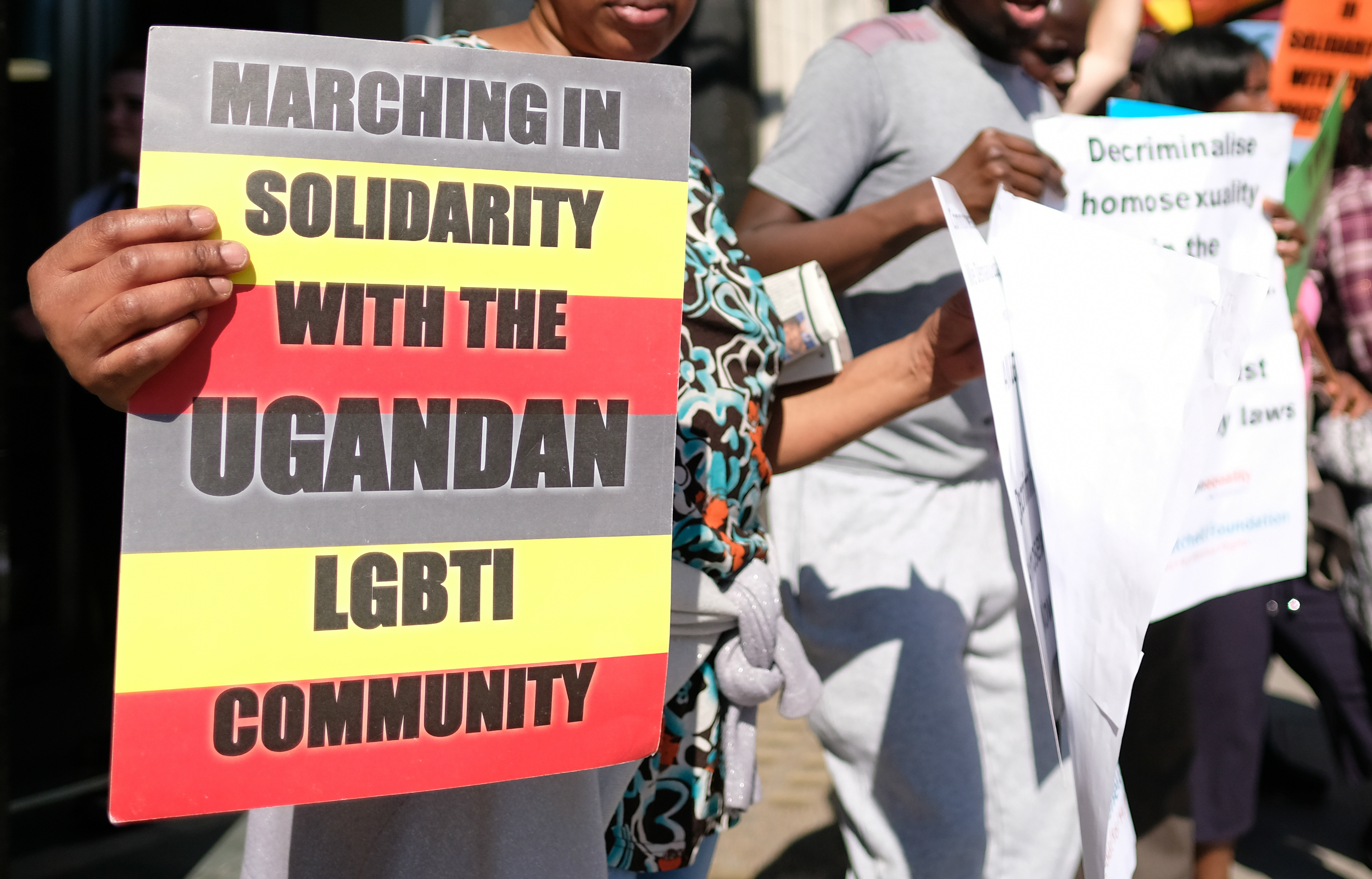How is it to live as a LGBTQ refugee from Uganda in a camp in another East African countyr? Nakafeero tells the story.
By Nakafeero Swabulah, Ugandan LGBTQ refugee in East Africa
[Update regarding country: The UNHCR has asked us not to name a specific country or the refugee camp in this country, as they are worried about the safety of the LGBTQ refugees. The relevant government has anti-LGBTQ legislation and the local culture is often homophobic and transphobic. We are therefore going to refer to this country as East African Country No. 2 - or EAC2 for short.]
I am a proud lesbian and a queer leader advocating for LGBTQ refugees in east Africa.
We are group of around 550 LGBTQ members who fled from Kakuma refugee camp in north western Kenya due to homophobia and hostility between different communities that were all against us .I am the leader of around 100 of these refugees, half of whom are kids.
 |
| One of the children |
We believe we have better hope of getting asylum in a LGBTQ-friendly country here in the EAC2 camp. But it is not as if we are safe here. EAC2 is in many ways a war zone on the border of another war torn country.
Nor is EAC2 known for being LGBTQ friendly. The Wikipedia puts it this way: "LGBTQ persons are met with abuse and discrimination from agents of the government and additionally face stigmatisation among the broader population". We have to live in a small camp surrounded by main barracks and soldiers are always nagging around with their weapons around the camp's trading center.
 |
| Refugees arriving |
We have spent many sleepless nights without anything to eat or to drink .
Since we don't have enough shelters to sleep in most of our fellows sleep outside provided shelters. This caused some of lesbians to be raped. Many of them have gotten HIV, and many have become pregnant.
If anyone wonder why a group of LGBTQ refugees have so many children, this is the main reason, I'm afraid. As far as medical support is concerned, we have to pay for most of it out of our own pockets.
And the young kids need milk, enough care and proper hygiene which is not easy at all under these conditions.
We do not, for instance, have enough toilets and bathrooms, in the camp.
Since most of us sleep outside we are also being attacked by some dangerous wild life, such as snakes and scorpions which are very dangerous to us. To give one example: Yesterday we found a large snake in our shelter. One of our kids was going to sleep and stepped on it.
 |
| Snake found in sleeping quarters |
The women among us use polythene bags throughout our periods which cause infections and itching.
Imagine you can't exercise your rights not even get yourself a job and hang on for a moment?
We call upon for your support and intervention on advocating for equality of LGBTQ living in fear and distress . We really need attention and assistance mostly on purchasing food and isolate ourselves in our shelter because we can't mingle with other communities who always attack us and leave us miserable, traumatized and tormented.
And anyone who knows anything about how we can be evacuated to a third country please let us know.
I hope that our humble request will be considered in love and solidarity!





.jpg)

.jpg)

